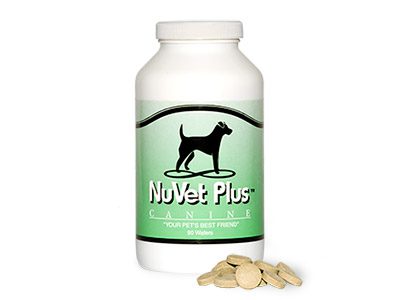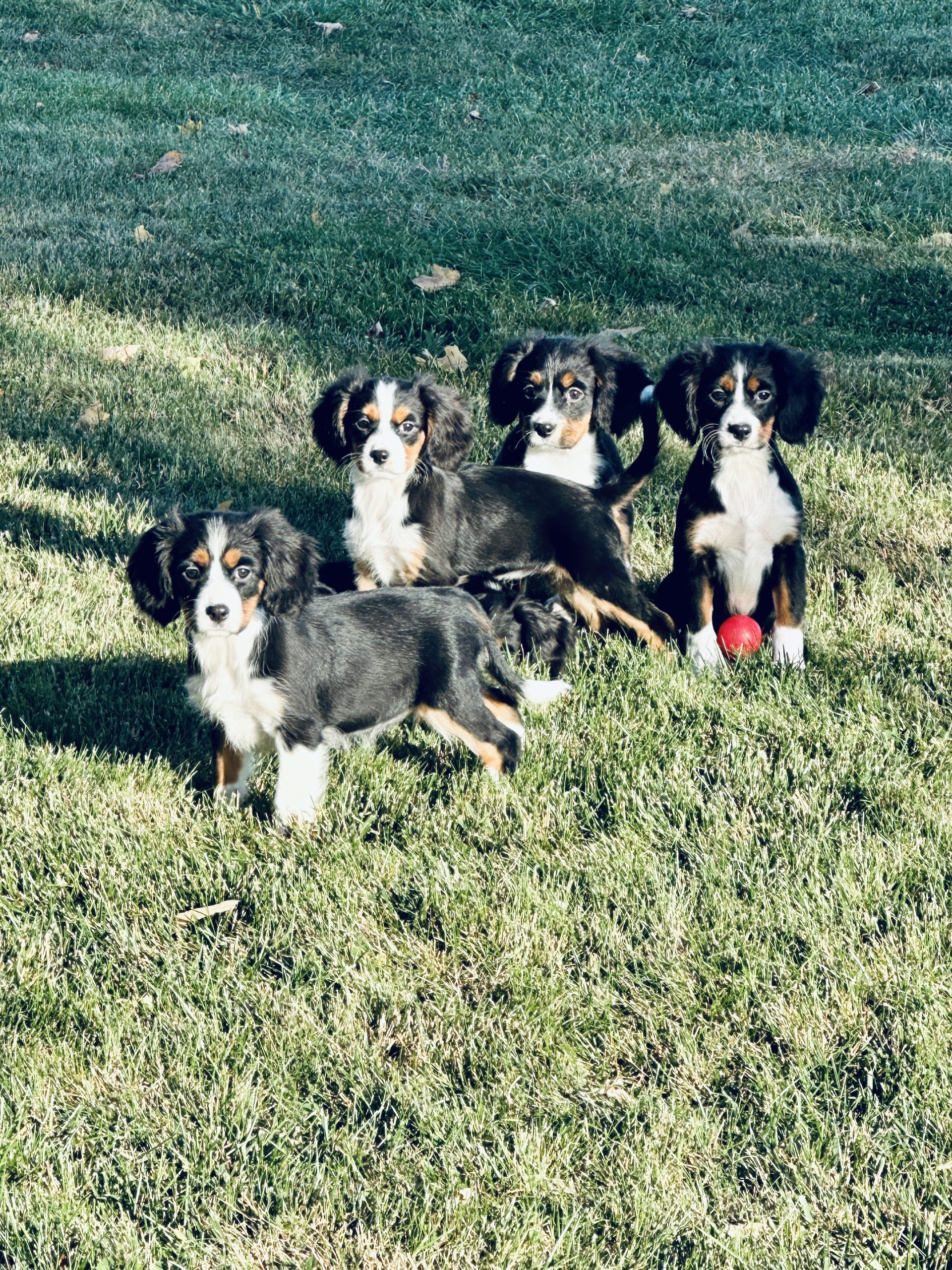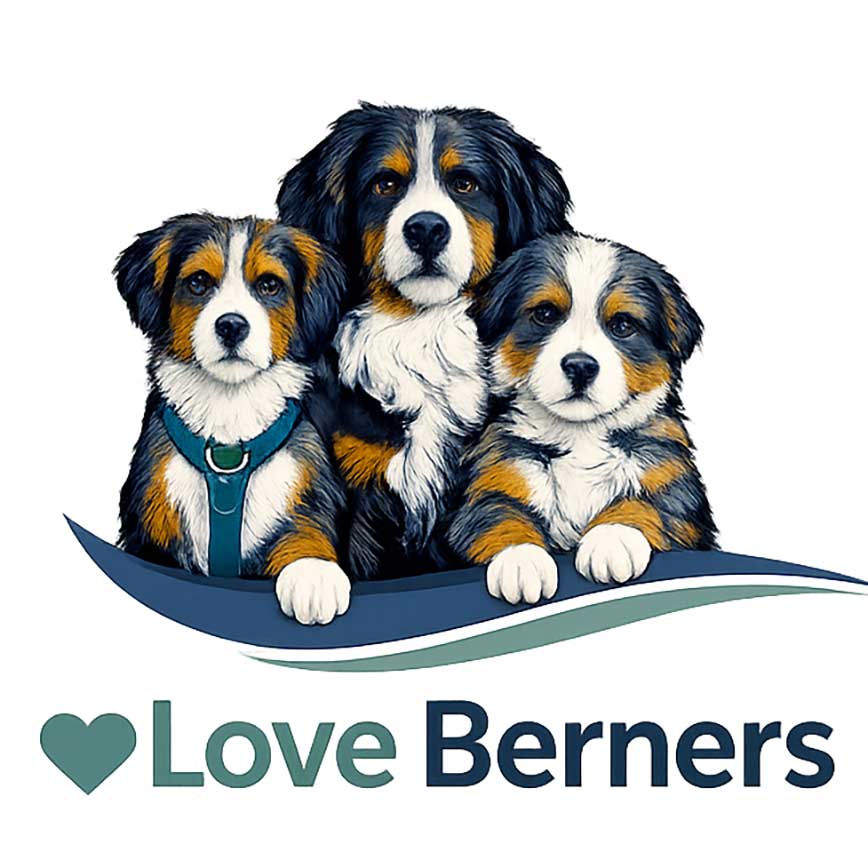Feeding Your Future Best Friend
Welcome to Lover Berners! We know that bringing a new puppy into your home is an exciting journey, and part of that journey is ensuring that your new friend stays healthy and happy. That’s why we’ve put together some key nutrition tips and food recommendations for your Bernese Mountain Dog, Mini Bernedoodle, or Tiny Bernedoodle.
Best Foods for Your Dogs
At Lover Berners, we recommend a balanced diet that caters to the specific nutritional needs of your puppy’s breed and age. Here are our top food picks:
- High-Quality Dry Kibble: Choose a kibble that lists meat (like chicken, beef, or lamb) as the first ingredient. Ensure that it is appropriate for the age, size, and activity level of your puppy. Brands we trust include Blue Buffalo, Wellness, and Orijen, which offer formulas specifically designed for puppies.
- Wet Food as a Supplement: Adding wet food can help enhance your puppy’s appetite and provide additional hydration. It’s especially beneficial for younger puppies who may find dry food hard to chew.
- Raw Diet Considerations: Some owners opt for a raw diet, which may include raw meat, fruits, and vegetables. If you’re considering this route, it’s essential to consult with a veterinarian to ensure a balanced diet that prevents nutritional deficiencies.
- Special Treats: Treats are a great way to train and bond with your puppy. Opt for healthy options like small bits of carrot, apple, or commercial treats designed for puppies. Remember, treats should not make up more than 10% of your puppy’s daily food intake.


Good Nutrition Habits
- Consistent Feeding Schedule: Feed your puppy at the same times every day to establish a routine. Puppies typically eat three to four times a day.
- Proper Portion Control: Avoid overfeeding. Follow the feeding guide on the food package and adjust as necessary based on your puppy’s activity level and growth.
- Fresh Water Availability: Always have fresh water available, and change it daily to encourage your puppy to stay hydrated.
- Avoid Human Food: While it’s tempting to share your meals with your furry friend, many human foods are unhealthy and even dangerous for dogs. Stick to dog-specific foods unless advised otherwise by your vet.
- Regular Vet Check-ups: Regular check-ups with your veterinarian will help ensure your puppy is on the right track and catch any potential dietary issues early.
We at Lover Berners are committed to your puppy’s health and well-being. These nutrition tips will help you make informed choices about feeding your new pet, ensuring they grow up strong and healthy. If you have any questions about your puppy’s diet or need more detailed guidance, please don’t hesitate to contact us or consult with a professional veterinarian.

